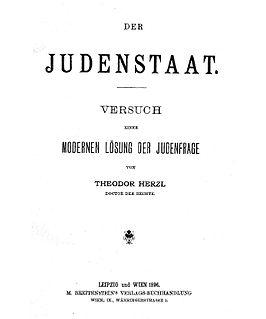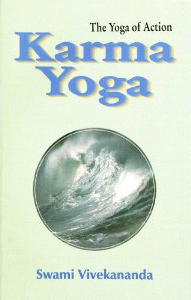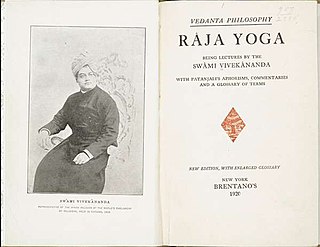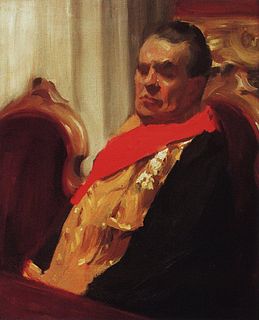 W
WA History of the Birds of Europe, Including all the Species Inhabiting the Western Palearctic Region is a nine-volume ornithological book published in parts between 1871 and 1896. It was mainly written by Henry Eeles Dresser, although Richard Bowdler Sharpe co-authored the earlier volumes. It describes all the bird species reliably recorded in the wild in Europe and adjacent geographical areas with similar fauna, giving their worldwide distribution, variations in appearance and migratory movements.
 W
WThe Austro-Hungarian Monarchy in Word and Picture or, as it is generally known, the Kronprinzenwerk, is a 24-volume encyclopedia of regional studies, initiated in 1883 by Crown Prince Rudolf of Austria-Hungary.
 W
WThe Boston Cooking-School Cook Book (1896) by Fannie Farmer is a 19th-century general reference cookbook which is still available both in reprint and in updated form. It was particularly notable for a more rigorous approach to recipe writing than had been common up to that point.
 W
WCurious Punishments of Bygone Days is a history book published in 1896. It was written by Alice Morse Earle and printed by Herbert S. Stone & Company. Earle was a historian of Colonial America, and she writes in her introduction: In ransacking old court records, newspapers, diaries and letters for the historic foundation of the books which I have written on colonial history, I have found and noted much of interest that has not been used or referred to in any of those books. An accumulation of notes on old-time laws, punishments and penalties has evoked this volume.
 W
WDer Judenstaat is a pamphlet written by Theodor Herzl and published in February 1896 in Leipzig and Vienna by M. Breitenstein's Verlags-Buchhandlung. It is subtitled with "Versuch einer modernen Lösung der Judenfrage" and was originally called "Address to the Rothschilds", referring to the Rothschild family banking dynasty, as Herzl planned to deliver it as a speech to the Rothschild family. Baron Edmond de Rothschild rejected Herzl's plan, feeling that it threatened Jews in the Diaspora. He also thought it would put his own settlements at risk.
 W
WDicey, Morris & Collins on the Conflict of Laws is the leading English law textbook on the conflict of laws (ISBN 978-0-414-02453-3). It has been described as the "gold standard" in terms of academic writing on the subject, and the "foremost authority on private international law".
 W
WThe Great K & A Train Robbery is a 1926 American Western silent film directed by Lewis Seiler and starring Tom Mix and Dorothy Dwan. The film is based on the actual foiling of a train robbery by Dick Gordon as related by Paul Leicester Ford in his book The Great K & A Train Robbery originally published as a serial in Lippincott's Monthly Magazine in 1896.
 W
WGreat Prince's, Tsar's and Emperor's Hunting in Russia is a book by Russian historian Nikolai Kutepov published from 1896 to 1911.
 W
WA History of Banking in all the Leading Nations, first published in 1896 by The Journal of Commerce, is a four-volume history of banking in North America, Europe, China and Japan. At the time of publication it was described as "the largest and most expensive treatise on banking yet published". Thirteen authors contributed to the work, all of whom were considered "eminent as bankers, financiers and political economists". The title page bears the notice "Edited by the Editor of The Journal of Commerce and Commercial Bulletin".
 W
WA History of the Warfare of Science with Theology in Christendom was published in two volumes by Andrew Dickson White, a founder of Cornell University, in 1896. In the introduction White states the original goal of his 1874 lecture on The Battlefields of Science and elaborated in a book The Warfare of Science the same year:In all modern history, interference with science in the supposed interest of religion, no matter how conscientious such interference may have been, has resulted in the direst evils both to religion and to science, and invariably; and, on the other hand, all untrammelled scientific investigation, no matter how dangerous to religion some of its stages may have seemed for the time to be, has invariably resulted in the highest good both of religion and of science.
 W
WInternational Cloud Atlas is a cloud atlas that was first published in 1896 and has remained in print since then. Its initial purposes included aiding the training of meteorologists and promoting more consistent use of vocabulary describing clouds, which were both important for early weather forecasting. The first edition featured color plates of color photographs, then still a very new technology, but noted for being expensive. Numerous later editions have been published.
 W
WKarl Marx and the Close of His System is an 1896 book about the philosopher Karl Marx by the Austrian economist Eugen von Böhm-Bawerk, in which the author critiques Marx's economic theories.
 W
WKarma Yoga is a book of lectures by Swami Vivekananda, as transcribed by Joseph Josiah Goodwin. It was published in February 1896 in New York City. Swami Vivekananda delivered a number of lectures in his rented rooms at 228 W 39th Street in New York City from December 1895 to January 1896. In 1895 friends and supporters of Swami Vivekananda hired Goodwin, a professional stenographer, who transcribed some of the lectures which were later published as this book. Goodwin later became a follower of Vivekananda.
 W
WSøren Kierkegaard as Philosopher is an 1896 book about Søren Kierkegaard by philosopher Harald Høffding. Its publication marked a significant turning-point in German philosophy, which formally introduced and disseminated Kierkegaard's philosophy to Germany and the rest of Continental Europe by the beginning of the 20th century. Søren Kierkegaard as Philosopher was one of the first German studies of Kierkegaard to treat him as a coherent philosopher and theologian, and raised questions that became central to Kierkegaard studies and to German lebensphilosophie generally.
 W
WMatter and Memory is a book by the French philosopher Henri Bergson. Its subtitle is Essay on the relation of body and spirit, and the work presents an analysis of the classical philosophical problems concerning this relation. Within that frame the analysis of memory serves the purpose of clarifying the problem. Matter and Memory was written in reaction to the book The Maladies of Memory by Théodule Ribot, which appeared in 1881. Ribot claimed that the findings of brain science proved that memory is lodged within a particular part of the nervous system; localized within the brain and thus being of a material nature. Bergson was opposed to this reduction of spirit to matter. Defending a clear anti-reductionist position, he considered memory to be of a deeply spiritual nature, the brain serving the need of orienting present action by inserting relevant memories. The brain thus being of a practical nature, certain lesions tend to perturb this practical function, but without erasing memory as such. The memories are, instead, simply not 'incarnated', and cannot serve their purpose.
 W
WThe Merck Index is an encyclopedia of chemicals, drugs and biologicals with over 10,000 monograph on single substances or groups of related compounds published online by the Royal Society of Chemistry.
 W
WMight Is Right or The Survival of the Fittest is a book by pseudonymous author Ragnar Redbeard, generally believed to be a pen name of Arthur Desmond. First published in 1896, it advocates amorality, consequentialism and psychological hedonism. In Might Is Right, Redbeard rejects conventional ideas such as advocacy of human and natural rights and argues in addition that only strength or physical might can establish moral right. The book also attacks Christianity and democracy. Friedrich Nietzsche's theories of master–slave morality and herd mentality served as inspirations for Redbeard's book which was written contemporaneously.
 W
WRaja Yoga is a book by Swami Vivekananda about "Raja Yoga", his interpretation of Patanjali's Yoga Sutras adapted for a Western audience. The book was published in July 1896. It became an instant success and was highly influential in the Western understanding of yoga.
 W
WThe Russian Biographical Dictionary is a Russian-language biographical dictionary published by the Russian Historian Society edited by a collective with Alexander Polovtsov as the editor-in-chief. The dictionary was published in 25 volumes from 1896 to 1918 and considered as one of the most comprehensive Russian biographical sources for the 19th and early 20th century period.
 W
WThe Sense of Beauty is a book on aesthetics by the philosopher George Santayana. The book was published in 1896 by Charles Scribner's Sons, and is based on the lectures Santayana gave on aesthetics while teaching at Harvard University. Santayana published the book out of necessity, for tenure, rather than inspiration. In an anecdote retold by art critic Arthur Danto of a meeting with Santayana in 1950, Santayana was reported to have said that "they let me know through the ladies that I had better publish a book... on art, of course. So I wrote this wretched potboiler."
 W
WThe Treasure of the Humble is a collection of thirteen deeply reflective mystical essays by the Belgian Nobel Laureate Maurice Maeterlinck. The work is dedicated to Georgette Leblanc.
 W
WVedanta Philosophy: An address before the Graduate Philosophical Society is a lecture given by Swami Vivekananda on 25 March 1896 at the Graduate Philosophical Society of Harvard University. After this lecture, the university offered Vivekananda the chair of Eastern Philosophy.
 W
WVoluntary Socialism is a work of nonfiction by the American mutualist Francis Dashwood Tandy (1867–1913). First published in 1896, it has been favorably cited by many individualist anarchists, including Clarence Lee Swartz, minarchist Robert Nozick and left-libertarian Roderick T. Long, who has noted that "many of the standard moves in market anarchist theory today are already in evidence in Tandy".